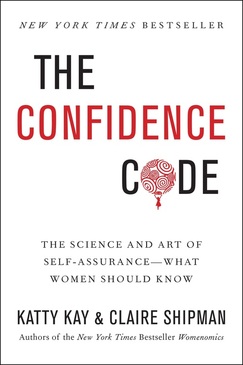|
Scottie Pippen is trending on Facebook. In a new Footlocker commercial, he and Charles Barkley give James Harden advice for starting fresh: have a short memory. Pippen then declares, "I'm the greatest Chicago Bull of all time."
Pippen is obviously joking -- but the idea of having a short memory and reframing past mistakes is one that could really help women, both on the court and in the workplace.
A great basketball coach once told me, "On average, men think about the mistakes they make on the court for ten seconds. Do you know how long a women thinks about her mistakes? Ten minutes."
He didn't cite this study, and a quick Google search didn't yield any useful results. So I don't promise it's true. But plenty of other studies that demonstrate that men and women handle mistakes in a manner that is consistent with Coach's proclamation.
On average, women are more likely than men to ruminate. This drives underperformance. It takes your head out of the game, removes you from the present. It causes anxiety and regret, which kill confidence and creativity. People who ruminate are also more likely to get depressed -- and, indeed, women are about three times more likely to be diagnosed with depression than men. (Howeeeeever, there are some problems with this statistic. For example, doctors tend to attribute female sadness to internal and stable causes, while they attribute male sadness to external, temporary ones. Or the fact that men are socialized not to seek medical or psychological help. Or that women are more likely to talk about their feelings to their friends -- and are, therefore, more likely to be referred to therapy. But still.) Researcher Patricia Bryans, while at the Newcastle Business School at Northumbria University in England, found that men even have a harder time recalling failure than women. Their stories are "tidy" -- they blame external forces (e.g., It was too soon for this idea), and are brief and concise when describing a failure. Women's stories are "messy." They blame themselves for what happened, get more emotional, and are five times more likely than men to say that they are "still living with their mistake." In Bryans' study, there were 64 occurrences of women feeling stupid, silly, foolish, embarrassed, mortified, devastated, gutted, terrible or losing sleep over it. There were only 20 usages of these words among male participants. In other words, women agonized over their mistakes and blamed themselves. Men recovered and blamed others. This mindset manifests itself in sucky ways. In a 2011 Institute of Leadership and Management study, half of female managers expressed self-doubt about their job performance and careers, versus a third of male managers. Linda Babock, author of Women Don't Ask: Negotiation and the Gender Divide, found that men negotiate their salaries four times more often than women -- and that, when they do negotiate, women ask for 30% less than men. Fear of failure and lower levels of confidence may also mean that people think less of you. In a recent Atlantic article, authors Kitty Kay and Claire Shipman write, Cameron Anderson, a psychologist who works in the business school at the University of California at Berkeley, has made a career of studying overconfidence. In 2009, he conducted some novel tests to compare the relative value of confidence and competence. He gave a group of 242 students a list of historical names and events, and asked them to tick off the ones they knew.
Confidence -- as well as doubt -- affects how we carry ourselves, which affects both how others see us... and, in a frustrating and self-perpetuating cycle, governs some hormonal and physiological processes in our bodies. When you assume a powerful "victory stance," your testosterone (the dominance hormone) levels rise, and your cortisol (stress hormone ) levels drop.
In the following TED Talk, Dr. Amy Cuddy, author of Presence: Bringing Your Boldest Self to Your Biggest Challenges, encourages everyone to practice their victory stance for two minutes before interviews, meetings, competitions, etc. Do this by standing up straight, pushing your shoulders back, widening your stance and holding your head up high. Then raise your arms up in a "V" shape. I could go on and on about the research on this. But I won't. If you want to know more, check out The Confidence Code: The Science and Art of Self-Assurance --- What Women Should Know. I haven't read it myself, but I hear it is fabulous. Instead, I will stick with Charles Barkley and Scottie Pippen's sound advice: Mistakes happen. But all the greats have short memories. Want to know more? Check out:
0 Comments
Leave a Reply. |
About the Author

Eva is a content specialist with a passion for play, travel... and a little bit of girl power. Read more >
Want to support The Happy Talent? CLICK HERE!
Or Find me on Patreon!
What's Popular on The Happy Talent:
Trending in Dating and Relationships:
What's Popular in Science: Playfulness and Leisure Skills:
Popular in Psychology and Social Skills:
Categories
All
|


























 RSS Feed
RSS Feed